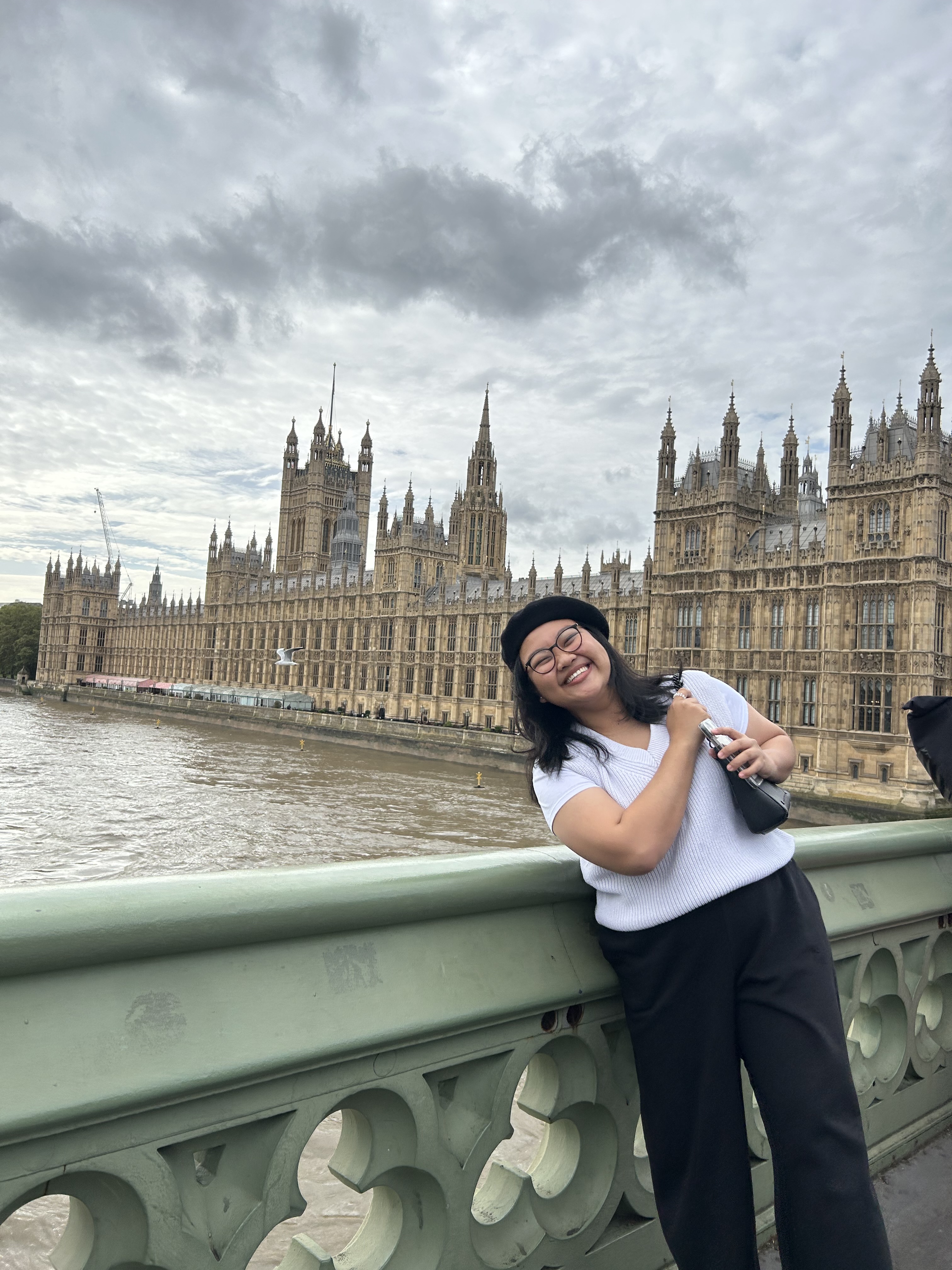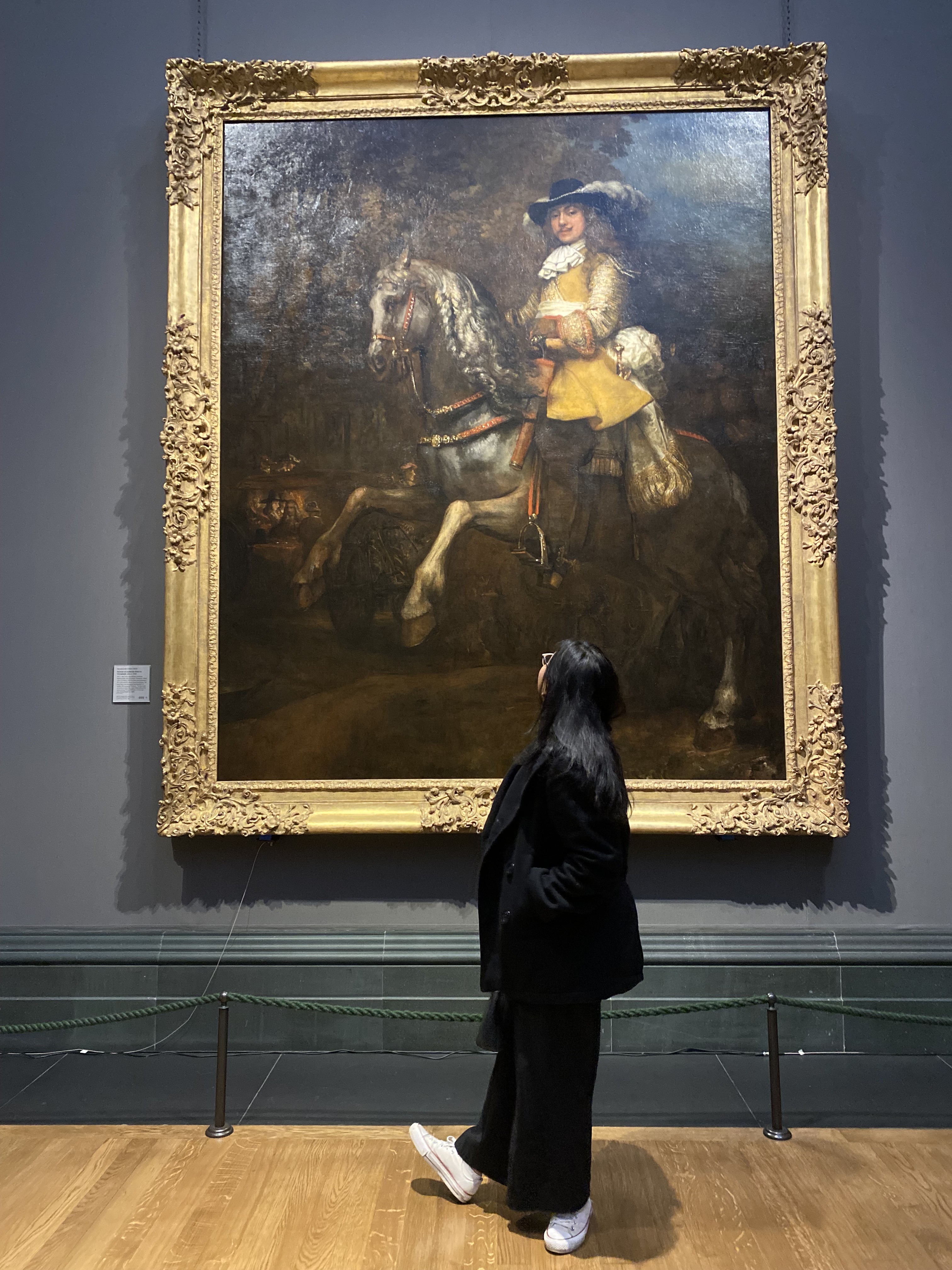Ficky studied abroad with us as one of our eight Indonesian International Student Mobility Awards (IISMA) scholarship awardees. Read about their studies with us below!
Writing about memorable things and moments during my three months in London is not the easiest because there are so many things I could write! I can’t even begin to talk about the very expanded choice of bookstores, the comfortable campus life in QMUL, or perhaps the engaging community I was part of during my time. However, if I really have to come down to write about one thing and one thing only, that would definitely be my experience in QMUL’s School of English and Drama (SED)!
In my home university, or it is safe to say generally in Indonesia, there are various sorts of “literature studies”, therefore we don’t usually call it just ‘English’ but ‘English Literature’ because there is also Dutch Literature (what I study!), German Literature, and the list goes on. I observed that it is indeed not very common in the UK because studies like Dutch, German, or Chinese are usually part of Modern Languages instead of schools like English and Drama. Our “literature studies” consist of both: we learn the language and the linguistics and at the same time, we learn about culture and the literal literature – the sonnets, the modernist works.


What truly made my whole experience in Queen Mary’s School of English and Drama is two things: one, I come from a Dutch-specific literature study where I am exposed more to everything Dutch and thus I do not have very much academic exposure to English literature (I have long been a fan of it, though!). Two, the way QMUL SED approaches the study is considerably different than how I do it at home and to put it shortly, the difference lies in how aspects of discussion are not studied separately from the literary work itself and how the literary work becomes the device of these discussions.
I was delighted to see the list of courses offered to us as IISMA awardees and I immediately spotted so many modules coming from SED. Of course, Victorian Fictions caught my eye first! Modernism and Renaissance Literary Culture followed close after. I took three of these modules considering that they are covering important periods of literature and I aimed to get as much insight as possible (in which I of course did and will forever be grateful of this chance!)
But what delights me more is the extended list of required reading and how carefully and very seriously curated they are. It appeared to me that there are solid reasons on why these titles are being chosen and the insightful discussion they’d bring to the table. I have read a few works from the Victorian period and therefore a few titles like Vanity Fair and Wuthering Heights were already familiar to me. Modernism, too. I was previously aware of a few names like Virginia Woolf and T. S. Eliot. But still! There are numerous authors and works I had never known or heard about and to now know about them and to have studied them at Queen Mary is a privilege! What is also very much intriguing for me was the works chosen for Renaissance Literary Culture. All along, when it comes to Renaissance texts, I of course only know sonnets and to talk sonnets, for me, is only to talk of Shakespeare. The joy I felt to be introduced to a wide range of texts, from maps to recipes, and to so many more sonneteers and their works!
Aside from the lecture-seminar system which differs from the one applied in Indonesia, which I believe has been talked about a lot, I appreciate the way the modules are approaching the literary works with both close reading and critical discourse. In my own major or program, the module usually approaches literary work rather internally (forms, rhymes) but barely about what the sonnets are about and how it might speak for certain topics considering either their period or the sonneteers themselves. However, in QMUL SED and in all three modules I am taking in that School, it has always been made sure that the lectures give a wider historical or social context that the text implies and at the same time, during the seminar, we are given a chance to also examine the text closely, independently. I think it is very important, because literary works should be able to both stand on their own and as a means of discourse and a way to retell and tell history.
Above all, the chance and opportunity given to me during my study in QMUL SED was not only knowledgeable and beneficial, but also exciting and fun. Through the writers and works introduced by the modules and the topics we were guided through every lecture and seminar, even if I am back home already, I can still explore so much! The framework I am using and the way I think about literary work has thoroughly changed and it is a very good change, one that I can apply to my own study. It probably started off as a mere list of required reading, but it both fed and grew my curiosity and it will forever keep my love for reading and studying literature alive!
